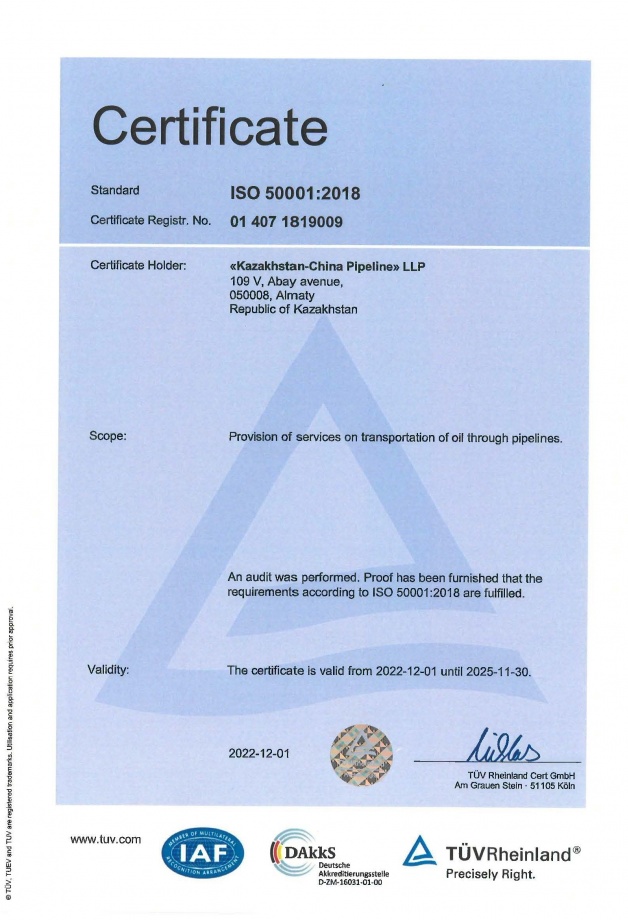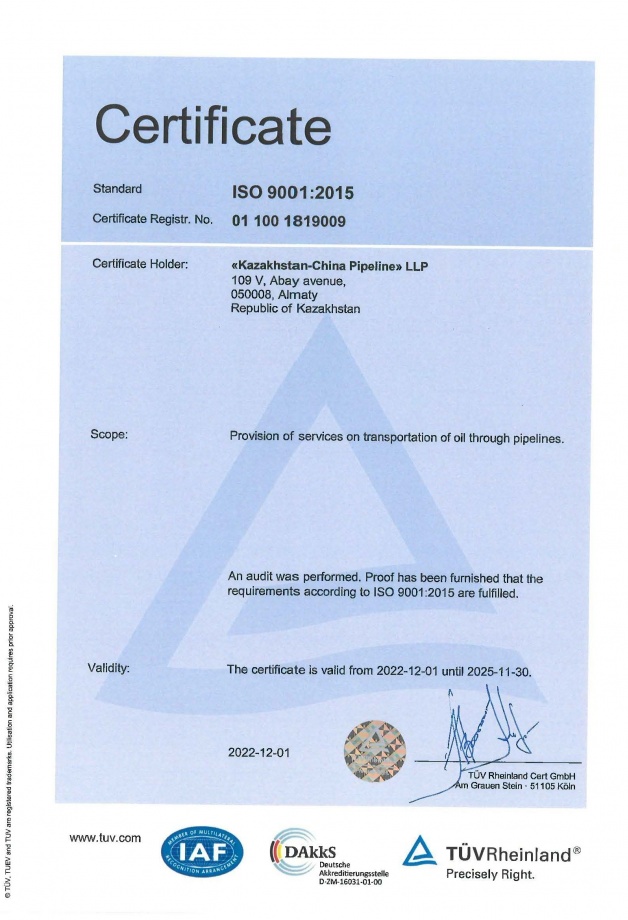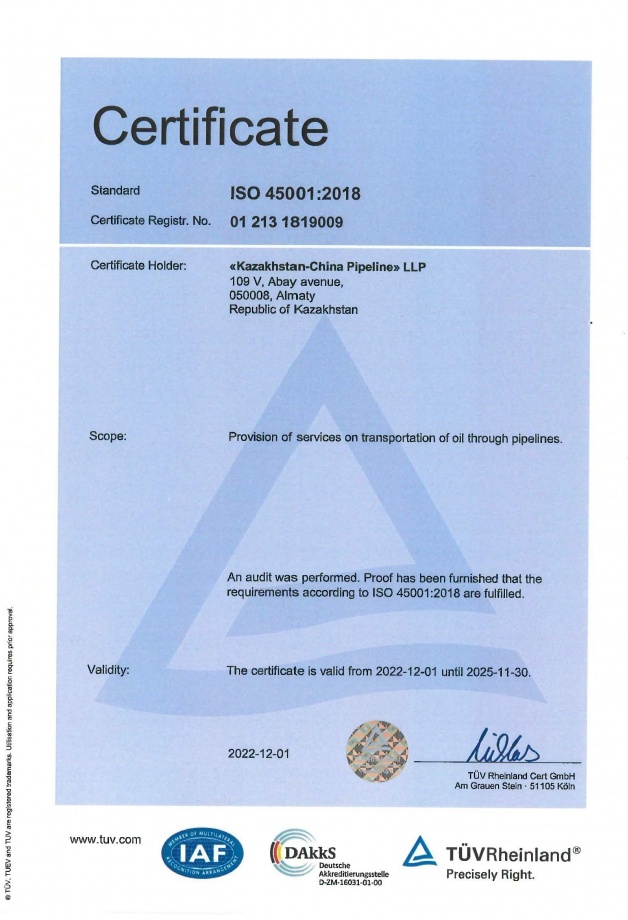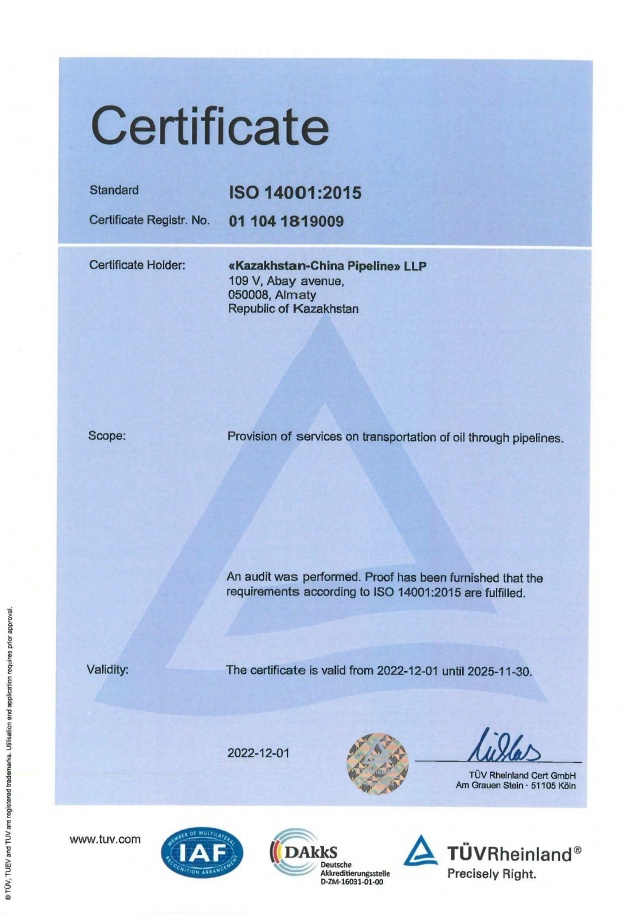Integrated management system
Implementation of international management standards
Introduction of an integrated management system for the Partnership is a strategic decision that contributes to the improvement of the company's performance and creates a reliable basis for its sustainable development initiatives. Sustainable development implies the achievement of the fundamental goals of economic and social progress, and environmental protection.
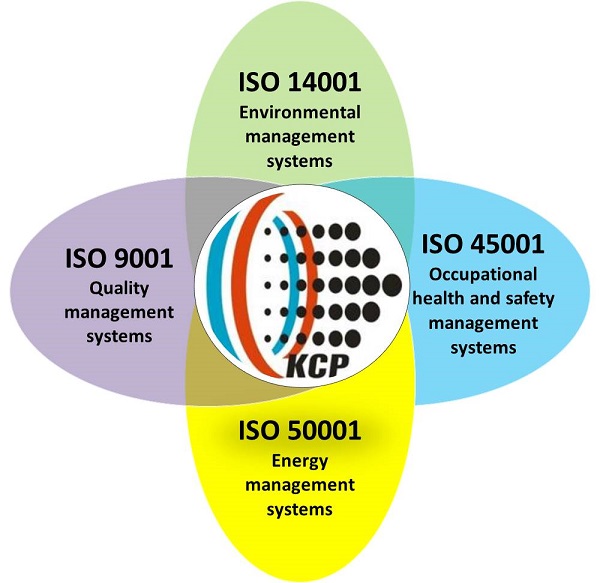
In accordance with the requirements of international standards, the Partnership is certified according to 4 management systems:
- ISO 9001 - Quality management system;
- ISO 14001 - Environmental management system;
- ISO 45001 - Occupational health and safety management system;
- ISO 50001 – Energy management systems.
Certificates of conformance were issued by an international certification body with a validity period up to March 10, 2023 for all four standards.
In order to comply with the requirements of Law No. 541-IV “On Energy Conservation and Energy Efficiency Improvement”, there was an energy audit in the Partnership in 2024. The next energy audit is planned for 2029.
Since 2016, the Partnership has been a subject of the State Energy Register (SER).
Potential benefits from the implementation of IMS for the Partnership:
- the ability to consistently provide services that meet customer requirements, as well as applicable laws;
- the ability to demonstrate compliance with the specific requirements of the integrated management system based on a process approach that includes the PDCA “Plan-Do-Check-Act” cycle and risk-based thinking, which creates the basis for improving the effectiveness of the quality management system, achieving better results and preventing negative consequences.
Risk management system
Process Risk Management of the Partnership involves striking a balance between maximizing opportunities of gain and avoid losses. This process is an important component of the management process and an integral part of a developed corporate management system.
Goals of the risk management system(RMS) are the timely identification, assessment, monitoring, reduction of the likelihood and the consequences of potential risk events that may adversely affect the achievement of the strategic and operational goals of the Partnership.
The tasks of the RMS are:
- improving the decision-making process for responding to risks;
- rational use of the Partnership's capital;
- prevention of risk events that threaten the achievement of the strategic and operational goals;
- integration of the risk management process with the key business processes of the Partnership.
The Partnership has introduced a vertical process for managing production and non-production risks. In this regard, there were approved:
- Policy on the corporate risk management system;
- Rules for organizing the process of production and non-production risk management;
- Technique of risk identification and assessment, selection of risk management methods.
The Internal Control System (ICS) is aimed at timely identification and analysis of process-level risks inherent in the Partnership’s activities, as well as determination and analysis of control procedures for managing these risks in three key areas of the ICS: operations, financial reporting and compliance with legal and regulatory requirements.
For the purpose of further implementation and improvement of the ICS, the Partnership developed and approved the following internal documents regulating the ICS:
- The ICS policy, which contains a statement on the directions and intentions of development, principles in the field of internal control and represents a general vision of the management for the improvement and development of the ICS;
- The procedure for performance of the ICS work, which determines the interaction of the subjects of the ICS and the distribution of responsibility for the organization, functioning and efficiency of the ICS.
